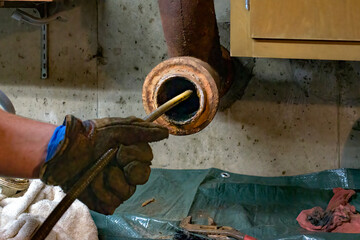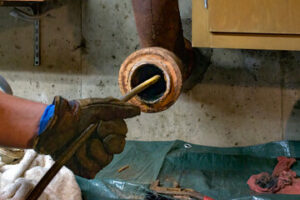Often times, the people you see manning entrances and roving around premises are security personnel. Sometimes referred to as private police, these men and women are the first to respond to any incident on property and serve as a deterrent against unauthorized activity. They patrol and monitor buildings, industrial spaces, residences, events, and more to prevent and detect intrusions. They may perform x-ray and metal detector screenings, lock doors and gates as necessary, and use surveillance systems to track movement. They also collaborate with law enforcement during incidents and emergency situations. Click the DMAC Security to know more.
Guards are also responsible for a range of customer service functions, such as greeting employees and visitors and escorting them through the building or to their vehicles in parking lots. They need to be able to explain security rules and precautions in a clear, concise manner. They must also be able to think clearly and calmly in stressful situations.

The presence of a guard force in an establishment is not only a visible deterrent against crime, it also conveys a sense of professionalism and security to employees, customers, and business associates. For this reason, it is important that the guard force be professional, well-trained, engaged, and promptly responsive. If not, the company may be looking for a different vendor for their security needs. It is worth noting that many guards work well into their retirement years and find satisfaction with the career. This is because it offers an attractive salary, good job prospects and a low stress level.
Sense of Senses
A security guard’s main duties are to deter crime and prevent it from occurring by observing suspicious activity and acting proactively. The following skills are critical for this role:
Perceptive – Security professionals should be able to read people well enough to know when someone is trying to pull a scam or if they are in a threatening position. They should also be able to quickly identify the type of person they are dealing with so they can deescalate and avoid the need for police involvement. Level-headed – The ability to stay calm in stressful situations is essential for security professionals. They must be able to keep others calm as well and avoid making things worse.
Vigilant – Security guards are always observant of their surroundings and should be able to see, hear, and smell anything that may be a threat. For example, a security guard should be able to notice faulty electrical lines, smell smoke or chemicals, or hear any suspicious noises. This is known as local awareness and can help them to protect their clients.
Distant Awareness – The second skill that security professionals should have is distant awareness. This involves obtaining information about events that may occur in the future, such as protests or marches in close proximity to a company’s building. This information can be used to create a security plan for the future and prepare accordingly.
Alert – A good security guard should be able to detect when something is wrong and alert the proper authorities immediately. This is one of the most important parts of their job and can save lives. For instance, a security guard recently spotted a man falling into a river and called the authorities to rescue him. This swift response saved the man’s life.
Observation Skills
A security guard’s observation skills help them notice and identify any potential threats or risks. This is especially important for security officers who are patrolling their assigned areas. A strong ability to observe through sight, sound, smell, and touch can alert them to any suspicious activity.
In addition to observation, a security guard must be able to communicate with the people they encounter. This includes being able to interact with anyone who is agitated or upset, and it also requires active listening and calm verbal communication. It’s a vital skill for any security guard to have, and one that can be developed through training.
Security guards must be able to accurately relay information about their surroundings and any potential threats to their team members and supervisors. This can be done through two-way radios or by utilizing security cameras in their workplaces. Security guards should also be able to write detailed reports about any incidents they experience during their shifts. These reports are often used in investigations by law enforcement agencies and insurance companies, so it’s important for them to be accurate.
A security guard might also be called on to assist in emergencies or disasters. This requires the ability to respond quickly, as well as basic first aid knowledge. They may also be the first on the scene of an accident, and it’s crucial that they are able to keep those affected calm until medical professionals arrive. A security guard should also have a good understanding of the laws and regulations that apply to their job. Regular legal training can help ensure that this knowledge is up to date.
Decision-Making Skills
Security guards need to have excellent decision-making skills when it comes to their safety and the safety of others. They work in a variety of settings and situations, from office buildings to shopping malls to airports. They also often collaborate with law enforcement officers to defuse tense situations and support investigations. Security guards should also know the laws and regulations that govern their locations. They must be able to apply their knowledge of emergency response protocols, trespassing laws and privacy rights to the places they protect.
Security guards are usually the first on-site personnel to respond to a crisis, so they need to be able to make quick decisions about how to de-escalate situations and keep people safe. This includes knowing how to react to unusual behavior, such as if someone is acting irrationally or sweating profusely. It also involves assessing the situation and making a clear, concise report.
A good security guard will be able to communicate clearly and effectively, both verbally and in writing. This is important for coordinating with other security staff, communicating with the public and reporting on incidents to clients and law enforcement officials.
In addition, security guards will need to be able to write detailed reports and documentation of their activities, observations and any security-related occurrences during shifts. This is an important skill because it will help them maintain accurate records and provide a complete overview of the premises they protect.
Another essential skill is being able to identify potential hazards, such as unsecured doors or windows, intruders on the property and dangerous chemicals or equipment in the area. Security guards should also have basic first aid training, so they can quickly and calmly help injured individuals until expert medical care arrives.
Integrity
Security guards are often tasked with interacting with the general public and must portray a professional image. They must also be healthy and fit to perform their duties and to be effective in de-escalating potentially volatile situations. In addition, a security guard must be trustworthy in order to ensure that they are representing their clients well and following the law in a responsible manner. Dishonest security personnel can cost businesses more than just their peace of mind. For instance, a guard who steals or allows unauthorized people to enter a building can expose businesses to a variety of security risks and liability issues.
Having integrity also means being honest with supervisors and colleagues, especially when discussing threats or incidents. Security guards often must report what they see to higher-ups or other security officers who are taking over their shifts. They must be able to clearly explain what happened, when, where, and how. Without a clear account of events, the next guard can’t respond in the most appropriate way or may even miss an important detail that could lead to an incident.
Good security guards also have the ability to defuse tense situations with de-escalation techniques like communication and negotiation. This can be a critical aspect of keeping the public safe, as some people might try to provoke security guards in the hope of getting them to react aggressively or escalate the situation.
While you rarely see security guards gathered in groups, they are often working as part of larger teams to ensure that a business’s perimeter is secure. It’s important for security guards to be team players, and this includes being willing to step up to help a colleague or to work extra hours for a coworker who needs to cover an unexpected shift. This shows that they care about their colleagues and that they can trust others to follow through on their promises.


